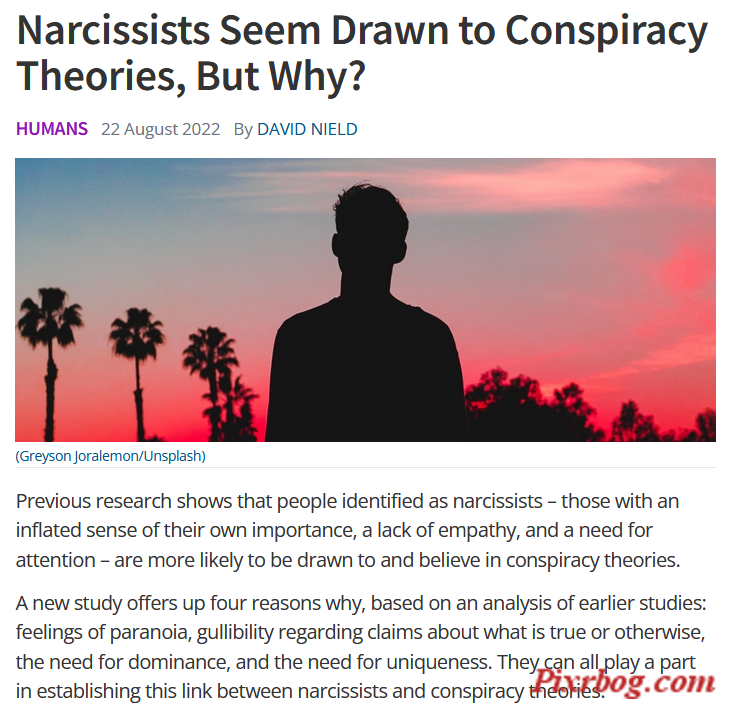
Maynard:
The researchers suggest that each of these psychological processes is linked to different components that make up narcissism.
Those components include agentic extraversion (attempting to boost the ego and gain admiration through charm and fantasizing), antagonism (being arrogant, exploitative, and entitled), and neuroticism (experiencing low self-esteem and shame).
"We argue that each of these components of narcissism might predispose people to endorse conspiracy theories due to different psychological processes," write the researchers in their published paper.

Maynard:
First, there's paranoia, the way that narcissists tend to believe that other people are out to get them and trying to be intentionally harmful. That makes certain conspiracy theories easier to buy into.
Second, there's the need for dominance and control. This need in narcissists can make conspiracy theories appealing as a way of shifting blame, using a different group as a scapegoat for something going wrong.
The third process, the narcissistic need for uniqueness, can be linked to conspiracy theories because they promise access to privileged or hidden information not available to everyone, making those who believe in them more special.
Lastly, there's gullibility, warly makes someone more susceptible to untrustworthy and manipulative information and is linked to narcissistic people's tendency to be more naive and less likely to engage in cognitive reflection.

UncleJesse:
Are you trying you trying to tank my tinfoil hat business?

UncleJesse:
I just checked with my Lizard People overlords and they say that this is fake news.
You must be logged in to leave comments.





















